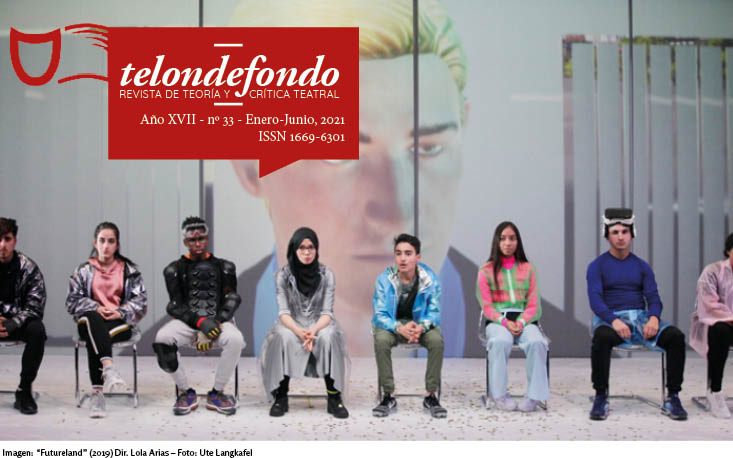The Notion of Scenic Virtuality in Aristotle's Poetics
Abstract
Scenic virtuality is a key notion within theater studies and, especially, regarding the analysis of the theatrical text. It modifies its literary character and shows its scenic potentiality. On its basis, the textual instance is connected with the stage one. In the same way that the text is part of the performance, based on the scenic virtuality, this one is present in the text. This work aims to identify arguments related to scenic virtuality in Artistotle’s Poetics and Rhetoric. This notion is extremely significant because it implies a characteristic of the theatrical text that refers to its disciplinary specificity. The fact that Aristotle explicitly takes into account this particularity of the poetic product shows, on the one hand, that he is aware of this specificity. On the other, the fact of including it in the recommendations to the poet for the correct composition of the plot implies that the philosopher advocates for it. That is to say that his conception of the theater includes the performance, that it is not indistinct that the poetic product is represented or not and, furthermore, that he values said instance.Downloads
Copyright (c) 2021 telondefondo. Revista de Teoría y Crítica Teatral

This work is licensed under a Creative Commons Attribution-ShareAlike 4.0 International License.
Los autores/as que publiquen en esta revista aceptan las siguientes condiciones:
-
Los autores/as [traductores] conservan los derechos de autor y ceden a la revista el derecho de la primera publicación, con el trabajo registrado con Licencia Creative Commons Atribución-NoComercial-CompartirIgual 4.0 Internacional, que permite a terceros utilizar lo publicado siempre que mencionen la autoría del trabajo y a la primera publicación en esta revista.
-
Los autores/as pueden realizar otros acuerdos contractuales independientes y adicionales para la distribución no exclusiva de la versión del artículo publicado en esta revista (p. ej., incluirlo en un repositorio institucional o publicarlo en un libro) siempre que indiquen claramente que el trabajo se publicó por primera vez en esta revista.
-
Se permite y recomienda a los autores/as a publicar su trabajo en Internet (por ejemplo en páginas institucionales o personales).











